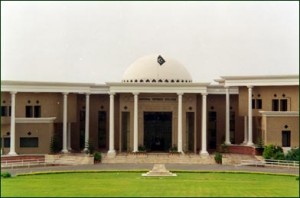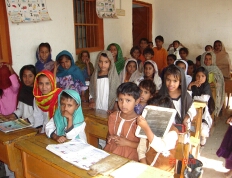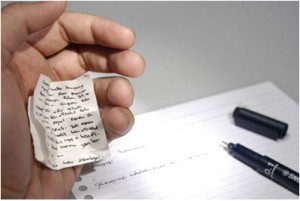Education is the preparation of the body and the mind for life. It equips ones with the means of physical existence, spiritual development independent approach and art of living. No doubt education is the key to success both for an individual and a nation.
Education in Pakistan is divided into five following levels:
- Primary (grades one through five)
- Middle (grades six through eight)
- High (grades nine and ten, leading to the Secondary School Certificate)
- Intermediate (grades eleven and twelve, leading to a Higher Secondary School Certificate)
- University programs leading to graduate (undergraduate) and advanced (post-graduate) degrees.
All academic education institutions are the responsibility of the provincial governments. The federal government mostly assists in curriculum development, accreditation and some financing of research.
Pre-school:
A child may begin his/her schooling at a pre-school at the age of 3. Over the last few years, many new kindergarten (sometimes called Montesorri) schools have sprung up in Pakistan.
Primary Education:
Formal education in Pakistan starts from around age 5. The first 5 years of school are referred to as primary. Thereafter, the next 3 are referred to as Middle and the 2 after as High school.
Secondary Education:
At the completion of High school, students are required to sit for board examinations referred to as Secondary School Certificate examinations or more commonly as ‘Matric’. Those that receive passing marks (normally 33%) on this examination are awarded a Secondary School Certificate or SSC.
Higher Secondary School Certificate:
After matriculation students may choose to undergo 2 years of additional schooling after which they sit for the Higher Secondary School Certificate (HSSC), more commonly referred to as ‘Intermediate’ exams. Students normally read about 5 subjects in a chosen stream such as pre-medical, science, humanities, pre-engineering etc.
Technical Education:
Students can enter a plethora of technical institutes for technical certificates and degrees. The entrance requirements for these courses vary greatly with some such as carpentry requiring the applicant to be literate whereas others such as B. Tech in automation require HSSC.
Post-Secondary:
Students can then precede to a College or University for Bachelor of Arts (BA) or Science (BSc) or Commerce/Business Administration (BCom/BBA) degree courses. There are two types of Bachelor courses in Pakistan namely Pass or Honours. Pass constitutes two years of study and students normally read three optional subjects whereas Honours are three or four years. It is important to note that Pass Bachelors is now slowly being phased out for Honours throughout the country. Students may also study for professional Bachelor degree courses such as engineering (B Engg), medicine (MBBS), vetrinary medicine(DVM) law (LLB), agriculture (B Agri), architecture (B Arch), nursing (B Nurs) etc. which are of four or five years duration depending on the degree
After getting master degree, there is PHD Education as well in selected areas. One has to choose specific field and the suitable university doing research work in that field. PhD in Pakistan consists of minimum 3-5 years. Owing to the failure of public schools to provide quality education to the children of Pakistan, many parents have enrolled their children in private schools. Although traditionally, private schools have been a luxury only the rich can afford. Nationally,
 Two-week long National Media Workshop Serial-4 started at National Defence University (NDU), Islamabad. Over seventy participants including eminent journalists, from all over the country along with some parliamentarians and persons from other segments of the society are participating in this workshop. The aim of the workshop is to discuss the importance of media as an element of national power in the pursuit of national interests and also to debate core issues confronting Pakistan.
Two-week long National Media Workshop Serial-4 started at National Defence University (NDU), Islamabad. Over seventy participants including eminent journalists, from all over the country along with some parliamentarians and persons from other segments of the society are participating in this workshop. The aim of the workshop is to discuss the importance of media as an element of national power in the pursuit of national interests and also to debate core issues confronting Pakistan.

 Every year thousands of students appear in examinations and the number keeps on increasing. The purpose of examination is to check how much student has learned but in Pakistan it is taken as game of percentage and grades. This competition led the students towards shortcuts and misconducts during exams. Our purpose is to highlight this issue that there should be a proper examination system for all levels.
Every year thousands of students appear in examinations and the number keeps on increasing. The purpose of examination is to check how much student has learned but in Pakistan it is taken as game of percentage and grades. This competition led the students towards shortcuts and misconducts during exams. Our purpose is to highlight this issue that there should be a proper examination system for all levels.